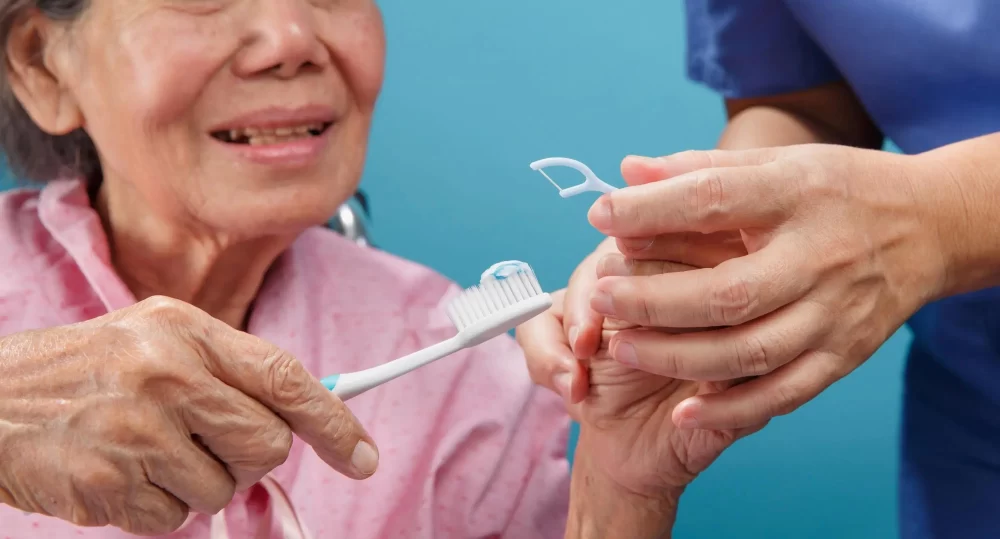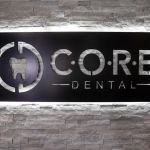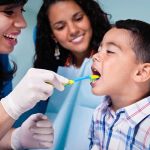
- Importance-of-Oral-Health-for-Elderly
- Common-Dental-Issues-in-Seniors
- Practical-Dental-Care-Tips-for-Elderly
- Lifestyle-and-Diet-Considerations-for-Aging-Teeth
- Professional-Dental-Care-and-When-to-See-a-Dentist
1. Importance of Oral Health for Elderly
Oral health is a crucial aspect of overall well-being, especially for elderly individuals. As we age, our teeth and gums become more vulnerable to various conditions that can affect not only our ability to eat and speak but also our self-confidence and general health. Maintaining good dental hygiene in seniors helps prevent tooth loss, gum disease, and infections that may lead to more serious health complications, such as cardiovascular disease or diabetes complications. Understanding the significance of dental care in elderly is the first step toward adopting effective habits and preventing common oral health issues.
It’s also important to recognize that aging brings natural changes to the mouth — enamel thins, saliva production may decrease, and existing dental work may require extra care. These factors make tailored dental care tips for elderly especially valuable for maintaining quality of life.
1.1 How Oral Health Impacts Overall Health
Research shows that poor oral hygiene can exacerbate conditions like heart disease and respiratory infections. For elderly individuals, whose immune systems might be weaker, dental infections can quickly become severe. Therefore, daily attention to oral care isn’t just about keeping a bright smile—it’s a critical component of health management.
1.2 Personal Story: Mrs. Johnson’s Journey to Better Dental Health
Mrs. Johnson, a 72-year-old retiree, struggled with recurring gum infections and tooth sensitivity, which affected her diet and confidence. After consulting with dental professionals and incorporating specialized dental care tips for elderly, including gentle brushing and routine professional cleanings, she experienced significant improvements. Her story highlights how targeted care can restore comfort and wellbeing even in later years.
2. Common Dental Issues in Seniors
Understanding the specific challenges elderly people face with their dental health helps us tailor effective care strategies. Some of the most common issues include:
2.1 Gum Disease and Periodontitis
Gum disease affects many seniors due to plaque buildup, often aggravated by reduced dexterity in brushing or flossing. If untreated, periodontitis can cause tooth loss and bone damage. Early detection and consistent care are essential.
2.2 Tooth Decay and Sensitivity
With aging, the protective enamel on teeth wears down, increasing vulnerability to cavities and sensitivity. Dry mouth, a common side effect of many medications elderly take, further exacerbates this problem by reducing saliva’s natural protective functions.
2.3 Tooth Loss and Denture Care
Tooth loss is a significant concern, often resulting from untreated decay or gum disease. Proper denture hygiene and fitting are vital for comfort, nutrition, and maintaining oral tissue health.
3. Practical Dental Care Tips for Elderly
Adopting specific dental care practices tailored to aging mouths can dramatically improve oral health. Here are detailed, actionable tips to help seniors maintain their teeth and gums:
3.1 Establish a Gentle but Thorough Oral Hygiene Routine
Use a soft-bristled toothbrush and fluoride toothpaste to brush twice daily, focusing on all tooth surfaces and along the gumline. Electric toothbrushes with timers can help ensure sufficient brushing time and reduce strain on the hands.
Flossing is equally important to remove plaque between teeth. For those with limited dexterity, floss holders or water flossers provide effective alternatives.
3.2 Manage Dry Mouth Symptoms
Dry mouth can accelerate decay and discomfort. Staying hydrated, chewing sugar-free gum, and using saliva substitutes can ease symptoms. Avoiding alcohol and caffeine, which dry out the mouth, is advisable.
3.3 Nutrition and Supplements Supporting Dental Health
Balanced nutrition rich in calcium, vitamin D, and phosphorus supports strong teeth and bones. Incorporating leafy greens, dairy products, and fortified foods can help. For some elderly, dentists may recommend supplements tailored to their needs.
3.4 Care for Dentures and Dental Appliances
Daily cleaning of dentures with nonabrasive cleaners prevents plaque buildup and odors. Removing dentures overnight allows oral tissues to recover and prevents infections.
4. Lifestyle and Diet Considerations for Aging Teeth
Healthy habits beyond daily brushing and flossing significantly influence elderly dental health.
4.1 Avoid Tobacco and Limit Alcohol
Smoking and heavy alcohol use increase risks of gum disease and oral cancer. Seniors who quit or limit these habits often see substantial improvements in oral and overall health.
4.2 Adapt Eating Habits for Oral Comfort
Hard or sticky foods may cause discomfort or damage sensitive teeth. Choosing softer foods and cutting food into smaller pieces helps maintain nutrition without stressing teeth.
4.3 Hydration and Its Role in Oral Health
Regular water intake supports saliva production and oral cleansing. Drinking fluoridated water also offers additional protection against decay.
5. Professional Dental Care and When to See a Dentist
Routine professional care remains essential for elderly individuals. Regular dental checkups enable early detection and management of issues before they worsen.
5.1 Frequency of Dental Visits
For most seniors, visiting a dentist every six months is recommended, but those with ongoing conditions may need more frequent care. During visits, professional cleanings, oral cancer screenings, and assessments of dentures or implants are conducted.
5.2 Communicating Health Changes
Seniors should inform their dentist about any new medications, health changes, or oral symptoms such as pain, bleeding gums, or loose teeth. This helps dentists tailor care effectively.
5.3 Accessing the Right Products and Services
Finding suitable dental care products like specialized toothbrushes, toothpaste, or denture adhesives can be challenging. Dentistry Toothtruth offers expert guidance and a selection of products designed to meet the unique needs of elderly dental care. Their recommendations ensure comfort, efficacy, and improved oral health outcomes.







 CORE Dental4.0 (123 review)
CORE Dental4.0 (123 review) Brilliant Smiles Dentistry4.0 (331 review)
Brilliant Smiles Dentistry4.0 (331 review) Hurley and Volk Orthodontics - South Elgin4.0 (410 review)
Hurley and Volk Orthodontics - South Elgin4.0 (410 review) Dentist Implants Bucks County5.0 (7 review)
Dentist Implants Bucks County5.0 (7 review) All Family Dental and Braces4.0 (689 review)
All Family Dental and Braces4.0 (689 review) Polaris Dental Care4.0 (170 review)
Polaris Dental Care4.0 (170 review) The Importance of Oral Health Education During Pregnancy for a Healthy Pregnancy
The Importance of Oral Health Education During Pregnancy for a Healthy Pregnancy Best Tips for Brushing Your Teeth Properly for Healthy Gums: Essential Techniques for Oral Health
Best Tips for Brushing Your Teeth Properly for Healthy Gums: Essential Techniques for Oral Health Why Skipping Dental Checkups Can Lead to Bigger Oral Health Problems
Why Skipping Dental Checkups Can Lead to Bigger Oral Health Problems Advantages of Porcelain Dental Restorations
Advantages of Porcelain Dental Restorations How Can Diabetes Cause Tooth and Gum Problems? Preventing and Managing Oral Health Issues
How Can Diabetes Cause Tooth and Gum Problems? Preventing and Managing Oral Health Issues Healthy Habits for Promoting Good Oral Health and Hygiene: Tips for a Healthy Smile
Healthy Habits for Promoting Good Oral Health and Hygiene: Tips for a Healthy Smile